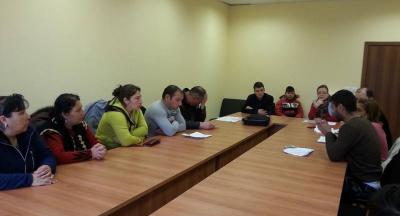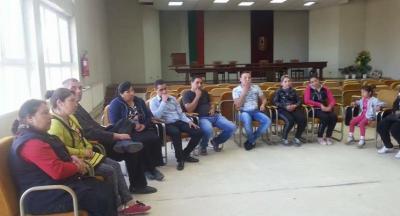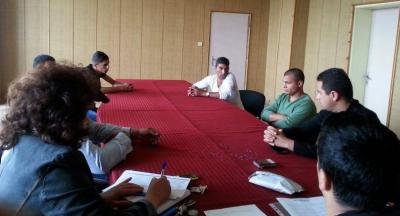Vetovo
*Disclaimer: The information and views set out in this page do not necessarily reflect the official opinion of the Council of Europe and/or the European Commission. Neither the Council of Europe, the European Commission nor any person acting on their behalf may be held responsible for the use which may be made of the information contained therein.
Vetovo municipality is located in northeastern Bulgaria, covering part of the Danube hilly plane, 40 km from Rousse and 35 km from Razgrad. The population numbers 12.450 inhabitants and the Roma population is about 15 %. They live mainly in Vetovo, Senovo town and Krivnya village. The main Roma groups are Horahane Roma (Muslim or Turkish speaking Roma) and Burgudzhii Christians. The group of Horahane Roma work different type of works, agriculture, have their own business etc; there is also part that is unemployed and relies on state welfare and a significant part of this group which works abroad.
Roma from Burgudzhii group are more traditional, they are craftsman and produce different types of handmade staff and sell them on the street. As they don’t have regular job most of them relies on state welfare.
The most significant issues faced by Roma in the municipality are the unemployment, school dropout, early marriages, bad road /street lights infrastructure in the neighborhoods.
The ROMACT Process
Vetovo municipality joined the ROMACT program in October 2015 with the signature of the letter of commitment.
Most important issues identified by the Community Action Group:
- Lack of adequate education and qualification (70% of youth between the age of 14 and 25 do not complete their secondary education);
- Illiteracy, including among adults;
- Lack of work habits and professional skills;
- Lack of jobs;
- Lack of almost any investments in the region;
- Narcotics use is high among young people;
- Lack of financial resources to pay health insurances and distrust in the state’s health system;
- Shortage of emergency help teams/ambulances.
The Municipality benefited of ROMACT expertise for the following projects :
The expertise provided by ROMACT for municipalities involves training and guidance on preparing project proposals and implementing inclusive policies aimed at improving the living conditions and social integration of vulnerable populations, including the Roma.
Community action group :
- Coaching on advocating short-term priorities and participation in the local consultative process;
- Training on Group development;
- Training on Advocacy process with the local administration;
- Training on communication as a tool of advocacy;
The following measures to solve problems in Roma community were taken:
Vetovo municipality implemented a project within Bulgarian-Swiss program which aimed at improving the health status of Roma in the region. The implemented activities were the renovation of a gynecological cabinet and free gynecological examinations in Vetovo town, the creation of a healthcare parlor in Senovo town.
Different temporary employment programs of the Bulgarian Employment Agency benefitting mainly to Roma (80 %)were implemented.
However, several elements impeded the implementation of ROMACT process, including the low financial capacity of the municipality and a conflict between the Mayor and the Local Council. In May 2016, ROMACT management team decided to suspend ROMACT implementation in Vetovo for a few months. Given the internal situation of the municipality remained unchanged, ROMACT implementation finally ended in February 2017.
Articles :
ROMACT Programme celebrates International ROMA Day 2024 | ROMACT



